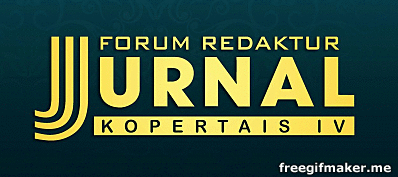Innovation in the Field of Learning: Deep Learning Approach and Its Application in Learning at Hayat School Bandung City

DOI:
https://doi.org/10.32665/alulya.v10i2.4414Keywords:
Deep Learning, Islamic Education, Contextual Learning, Project-Based Learning, Personalized Curriculum, Hayat SchoolAbstract
The rapid advancement of technology in the digital era demands that the field of education adapt by creating learning models that are contextual, personalized, and meaningful. One relevant approach to addressing this challenge is Deep Learning, which integrates artificial intelligence with experiential, pedagogy-based methods. This study aims to examine the implementation of the Deep Learning approach in the learning process at Hayat School Bandung SCM (School of Creative Minds) and its impact on the development of 21st-century competencies and student character. The research employs a descriptive qualitative method using techniques such as observation, documentation, and interviews with educators, students, and parents, alongside an analysis of the curriculum and supporting facilities at Hayat School. Data were analyzed inductively to uncover the meanings and transformative practices within the learning process. The findings reveal that the Deep Learning approach is applied through contextual learning, active reflection, meaningful discussions, project-based learning (PjBL), and a personalized curriculum. Teachers, referred to as "Kakak Fasil" (Facilitator Siblings), serve as facilitators who encourage student exploration and self-awareness. This approach proves effective in enhancing critical thinking skills, social empathy, and student spirituality. The discussion highlights that a tauhidullah-based curriculum and inclusive learning facilities support the success of this approach. In conclusion, Deep Learning at Hayat School not only improves academic quality but also shapes holistic individuals who are prepared to face future challenges with a strong internalization of Islamic values.
Downloads
References
Abiodun, O. I., Jantan, A., Omolara, A. E., Dada, K. V., Mohamed, N. A., & Arshad, H. (2018). State-of-the-art in arti fi cial neural network applications : A survey. Heliyon, 4(October), e00938. https://doi.org/10.1016/j.heliyon.2018.e00938
Ahmed, S. F., Alam, S. Bin, Hassan, M., Rozbu, M. R., Ishtiak, T., Rafa, N., Mofijur, M., Ali, A. B. M. S., & Gandomi, A. H. (2023). Deep learning modelling techniques : current progress , applications , advantages , and challenges. In Artificial Intelligence Review (Vol. 56, Issue 11). Springer Netherlands. https://doi.org/10.1007/s10462-023-10466-8
Al-Qur’an, T. P. T. (2019). Al-Qur’an dan Terjemahannya Edisi Penyempurnaan (1st ed.). Lajnah Pentashihan Mushaf Al-Qur’an. https://quran.kemenag.go.id/
Andayanie, L. M., Adhantoro, M. S., Purnomo, E., & Kurniaji, G. T. (2025). Implementation of Deep Learning in Education: Towards Mindful, Meaningful, and Joyful Learning Experiences Journal of Deep Learning. Journal of Deep Learning, 1(1), 47–56. https://journals2.ums.ac.id/index.php/jdl
Arianto, R. (2022). Permaslahan Dalam Pembelajaran. Jurnal Citra Pendidikan (JCP), 2(3), 550–554.
Artama, K. K. J., Budasi, I. G., & Ratminingsih, N. M. (2023). Promoting the 21st Century Skills Using Project-Based Learning. Language Circle: Journal of Language and Literature, 17(2), 325–332. https://doi.org/10.15294/lc.v17i2.39096
Bakry, U. S. (2017). Pemanfaatan Metode Etnografi dan Netnografi Dalam Penelitian Hubungan Internasional. Jurnal Global & Strategis, 11(1), 15. https://doi.org/10.20473/jgs.11.1.2017.15-26
Chakraborty, C., Bhattacharya, M., Pal, S., & Lee, S. (2024). Current Research in Biotechnology From machine learning to deep learning : Advances of the recent data-driven paradigm shift in medicine and healthcare. Current Research in Biotechnology, 7(August 2023), 100164. https://doi.org/10.1016/j.crbiot.2023.100164
Fadli, M. R. (2021). Memahami desain metode penelitian kualitatif. Humanika, 21(1), 33–54. https://doi.org/10.21831/hum.v21i1.38075
Fadlillah, N., Bakar, M. Y. A., & Assegaf, A. R. (2023). Optimizing Human Development: The Relevance of Hasan Langgulung’s Concept of Islamic Education in the 21st Century. Jurnal Penelitian Pendidikan Islam, 11(1), 18. https://doi.org/10.36667/jppi.v11i1.1525
Fullan, M., Quinn, J., & McEachen, J. (2018). Deep Learning Engage the World Change the World. SAGE Publications Ltd., 1–313. https://smansamendobarat.id/pluginfile.php/668/coursecat/description/02 _ deep learning.pdf
Imron, M. A., Mukminin, A., & Hidayat, M. (2020). Efektivitas Pembelajaran Daring Pada Mata Pelajaran Bahasa Indonesia Selama Masa Pandemi Covid-19 Di Sekolah Dasar. Jurnal Pendidikan Tematik, 5(1), 1–12.
Jamila, Ahdar, & Natsir, E. (2021). Problematika Guru dan Siswa dalam Proses Pembelajaran Daring pada Masa Pandemi Covid-19 di UPTD SMP Negeri 1 Parepare [Problems of Teachers and Students in the Online Learning Process during the Covid-19 Pandemic at UPTD SMP Negeri 1 Parepare]. AL Ma’ Arief: Jurnal Pendidikan Sosial Dan Budaya, 3(2), 101–110.
Kitta, S., & Salim, M. (2022). Point of View Research Management Transformational and Transactional Leadership Styles on Employee Performance. Point of View Research Managemen, 3(3), 362–376.
Lebert, A., & Vilarroya, Ó. (2024). The links between experiential learning and 4E cognition. Annals of the New York Academy of Sciences, 37–52. https://doi.org/10.1111/nyas.15238
Martiadi, R., Agustini, R., Nasir, T. M., Yudiyanto, M., & Kusuma, D. T. (2025). Integrasi Deep Learning dalam Pendidikan Islam Adaptif: Sebuah Studi Literatur Sistematis. An-Nahdlah: Jurnal Pendidikan Islam, Volume, 4(April), 817–826. https://doi.org/https://doi.org/10.51806/an-nahdlah.v4i3.674
Matahari, D. B., Nurohman, S., & Jumadi, J. (2023). Research Trends in Project-Based Learning Models in Facilitating 21st Century Skills: Systematic Literature Review. Jurnal Penelitian Pendidikan IPA, 9(4), 1607–1614. https://doi.org/10.29303/jppipa.v9i4.2544
Muchsinan, K., Prastiti, T. D., & Wahyuningrum, E. (2024). Pengaruh Project Based Learning Dan Gaya Belajar Terhadap Kemampuan Berpikir Kritis Dan Hasil Belajar Matematika. LEARNING : Jurnal Inovasi Penelitian Pendidikan Dan Pembelajaran, 4(1), 9–17. https://doi.org/10.51878/learning.v4i1.2717
Mulianah, B. (2023). Curriculum Of Islamic Education in The Context of Free Learning : A Critical Study. Edukasi Islami: Jurnal Pendidikan Islam, 12(04), 865–882. https://doi.org/10.30868/ei.v12i04.7388
Nasir, T. M. H. (2023). Fostering Islamic Education Talents: Art Weeks for Junior High School Students. AL-ISHLAH: Jurnal Pendidikan, 15(4), 6102–6111. https://doi.org/10.35445/alishlah.v15i4.1390
Nasir, T. M., Hermawan, A. H., Hasbiyallah, H., Permana, H. A., Sobariah, E. D. S., Nuroh, L., & Sahidin, D. (2024). Enhancing Decision-Making Skills in Islamic Religious Education: A Study on Utilizing PowerPoint-Assisted Puzzle Learning with the Make a Match Model. AL-ISHLAH: Jurnal Pendidikan, 16(2), 2657–2666. https://doi.org/https://doi.org/10.35445/alishlah.v16i2.4983
Nasser, A. A., Arifudin, O., Barlian, U. C., & Sauri, S. (2021). Sistem Penerimaan Siswa Baru Berbasis Web Dalam Meningkatkan Mutu Siswa Di Era Pandemi. Biormatika : Jurnal Ilmiah Fakultas Keguruan Dan Ilmu Pendidikan, 7(1), 100–109. https://doi.org/10.35569/biormatika.v7i1.965
Nasution, R. D. (2017). Effect of the Development of Communication Information Technology on Local Cultural Existence. Jurnal Penelitian Komunikasi Dan Opini Publik, 21(1), 123858. http://eprints.umpo.ac.id/5056/1/%28artikel%29 Pengaruh Perkembangan Teknologi Informasi Komunikasi Terhadap Eksistensi Budaya Lokal.pdf
Natalia, N., & Muhtarom, T. (2024). Peran Teknologi Pendidikan Dalam Meningkatkan Kualitas Pendidikan Di Era Disrupsi. Jurnal Nakula : Pusat Ilmu Pendidikan, Bahasa Dan Ilmu Sosial, 2(5), 79–87. https://doi.org/10.61132/nakula.v2i5.1008
Okpatrioka. (2023). Research And Development (R & D) Penelitian yang Inovatif dalam Pendidikan. Jurnal Pendidikan, Bahasa Dan Budaya, 1(1), 86–100.
Pramana, P., Priastuty, C. W., Utari, P., Aziz, R. A., & Purwati, E. (2022). Beradaptasi Dengan Perubahan Teknologi: Kecerdasan Buatan Dan Evolusi Komunikasi Interpersonal. Jurnal Ilmiah Dinamika Sosial, 7(2), 214–225. https://doi.org/10.38043/jids.v7i2.4909
Prihantoro, P., Prayitno, H. J., Indri, I., & Kusumaningtyas, D. A. (2025). Deep Learning: Policies, Concepts, and Implementation in Senior High Schools in Indonesia. Journal of Deep Learning, 1(1), 11–24.
Primartha. (2018). Melajar Machine Learning Teori dan Praktik.
Raup, A., Ridwan, W., Khoeriyah, Y., Supiana, S., & Zaqiah, Q. Y. (2022). Deep Learning dan Penerapannya dalam Pembelajaran. JIIP - Jurnal Ilmiah Ilmu Pendidikan, 5(9), 3258–3267. https://doi.org/10.54371/jiip.v5i9.805
Ridayani, R., Fajri, I., & Yusuf, R. (2021). Application of Project Citizen Learning Model : Descriptive Analysis of 21st Century Skills of High. Jurnal Pendidikan Kewarganegaraan Undiksha, 9(3), 789–800.
Robaeah, W. N., Irawan, I., & Nasir, T. M. (2023). Charismatic Kyai Leadership and Its Relationship to the Character Building of Santri at Islamic Boarding Schools in Plered Purwakarta District. Islamika, 5(2), 721–742. https://doi.org/10.36088/islamika.v5i2.3155
Rodriguez, M., Dooley, K. E., & Roberts, T. G. (2024). A Phenomenological Study of Intensive Experiential Learning for University Faculty Professional Development. Journal of Experiential Education, 47(4), 685–703. https://doi.org/10.1177/10538259241235915
Rohmaniyah, N., & Asih, S. W. (2024). Project-based learning design in secondary schools: enhancing students’ collaborative and creative skills. International Journal of Post Axial: Futuristic Teaching and Learning, 2(4), 274–287. https://doi.org/https://doi.org/10.59944/postaxial.v2i4.395
Selasmawati, & Lidyasari, A. T. (2023). Model Pembelajaran Project Based Learning (PjBL) dalam Meningkatkan Kemampuan Berpikir Kritis Sekolah Dasar Guna Mendukung Pembelajaran Abad 21. Jurnal Penelitian Pendidikan IPA, 9(11), 1165–1170. https://doi.org/10.29303/jppipa.v9i11.4776
Smith A. (2020). The Role of Interdisciplinary STEM Education in Developing 21st Century Skills. Journal of STEM Education. https://journal.ypidathu.or.id/index.php/ijen/article/view/1689
Suhendi, S., Khoiruddin, H., Ihsan, M. N., & Nasir, T. M. (2025). Hasyim Asy ’ ari ’ s Dimensions of Multicultural Spiritual Leadership : Harmony in Education and Society in Indonesia. Al-Hayat: Journal of Islamic Education, 9(1), 1–27. https://doi.org/https://doi.org/10.35723/ajie.v9i1.50
Suminto, S. (2020). Asas Psikologi dan Implikasinya dalam Pendidikan Islam Perspektif Hasan Langgulung. Andragogi : Jurnal Ilmiah Pendidikan Agama Islam, 2(1), 9–26. https://doi.org/https://doi.org/10.33474/ja.v2i1.4976
Ulfah, U., Supriani, Y., & Arifudin, O. (2022). Kepemimpinan Pendidikan di Era Disrupsi. JIIP - Jurnal Ilmiah Ilmu Pendidikan, 5(1), 153–161. https://doi.org/10.54371/jiip.v5i1.392
Waruwu, M. (2023). Pendekatan Penelitian Pendidikan: Metode Penelitian Kualitatif, Metode Penelitian Kuantitatif dan Metode Penelitian Kombinasi (Mixed Method). Jurnal Pendidikan Tambusai , 7(1), 2896–2910.
Zhang, L., & Ma, Y. (2023). A study of the impact of project-based learning on student learning effects: a meta-analysis study. Frontiers in Psychology, 14(July), 1–14. https://doi.org/10.3389/fpsyg.2023.1202728
Zhang, X., Guo, F., Chen, T., Pan, L., Beliakov, G., & Wu, J. (2023). A Brief Survey of Machine Learning and Deep Learning Techniques for E-Commerce Research. Journal of Theoretical and Applied Electronic Commerce Research, 18(4), 2188–2216. https://doi.org/https://doi.org/10.3390/ jtaer18040110 Academic
Downloads
Published
Issue
Section
License
Copyright (c) 2025 Tatang Muh Nasir, Yulia Kuraesin Ila Rohima, Mohammad Sabarudin, Muhamad Yasir, Supiana Supiana, Qiqi Yuliati Zaqiah

This work is licensed under a Creative Commons Attribution 4.0 International License.
 PDF Download: 111
PDF Download: 111












